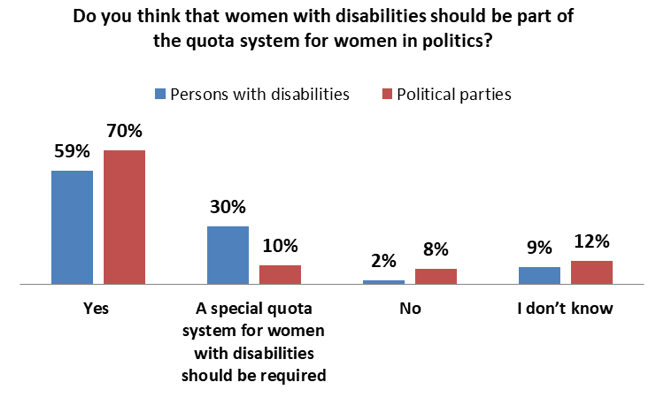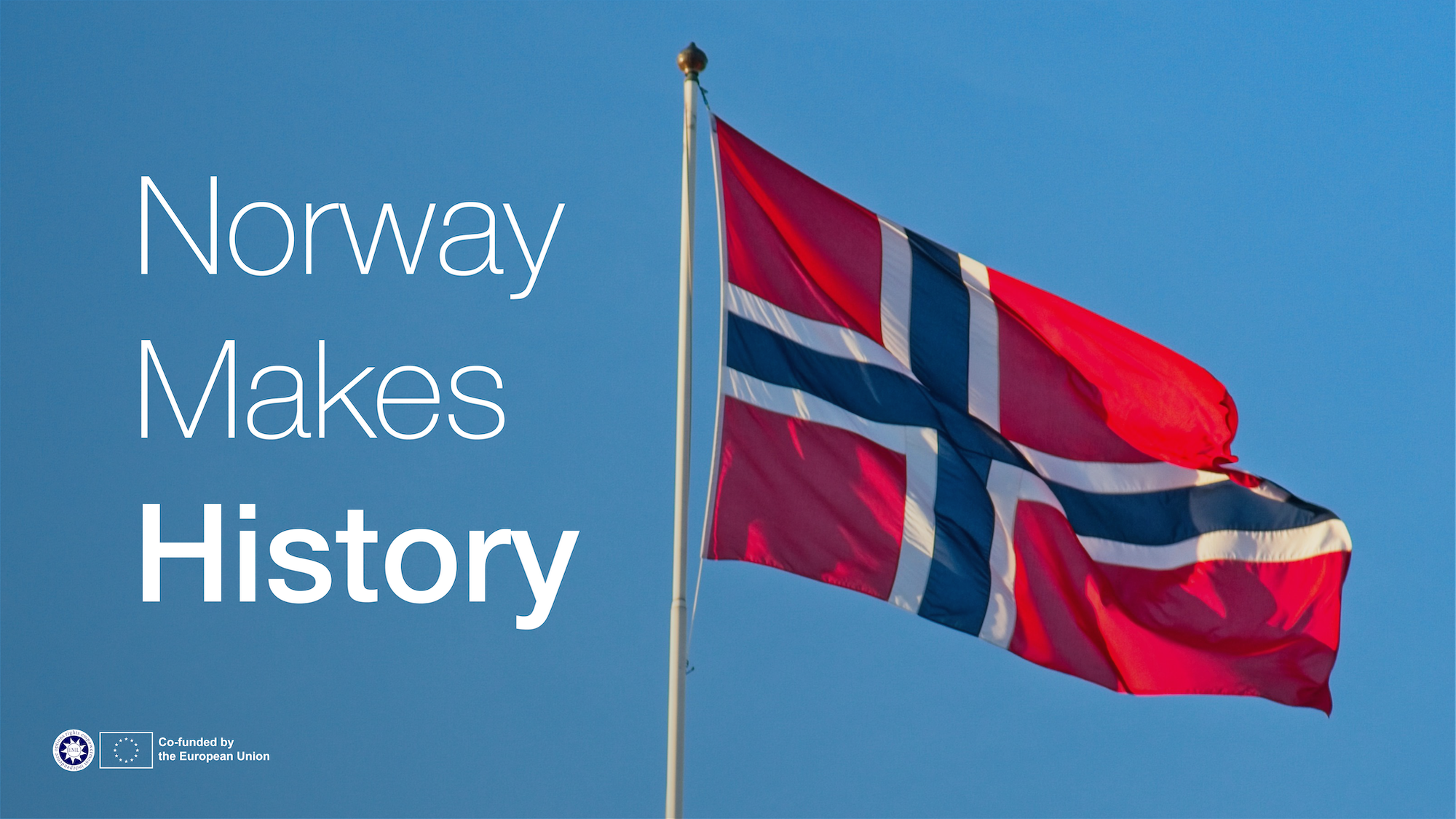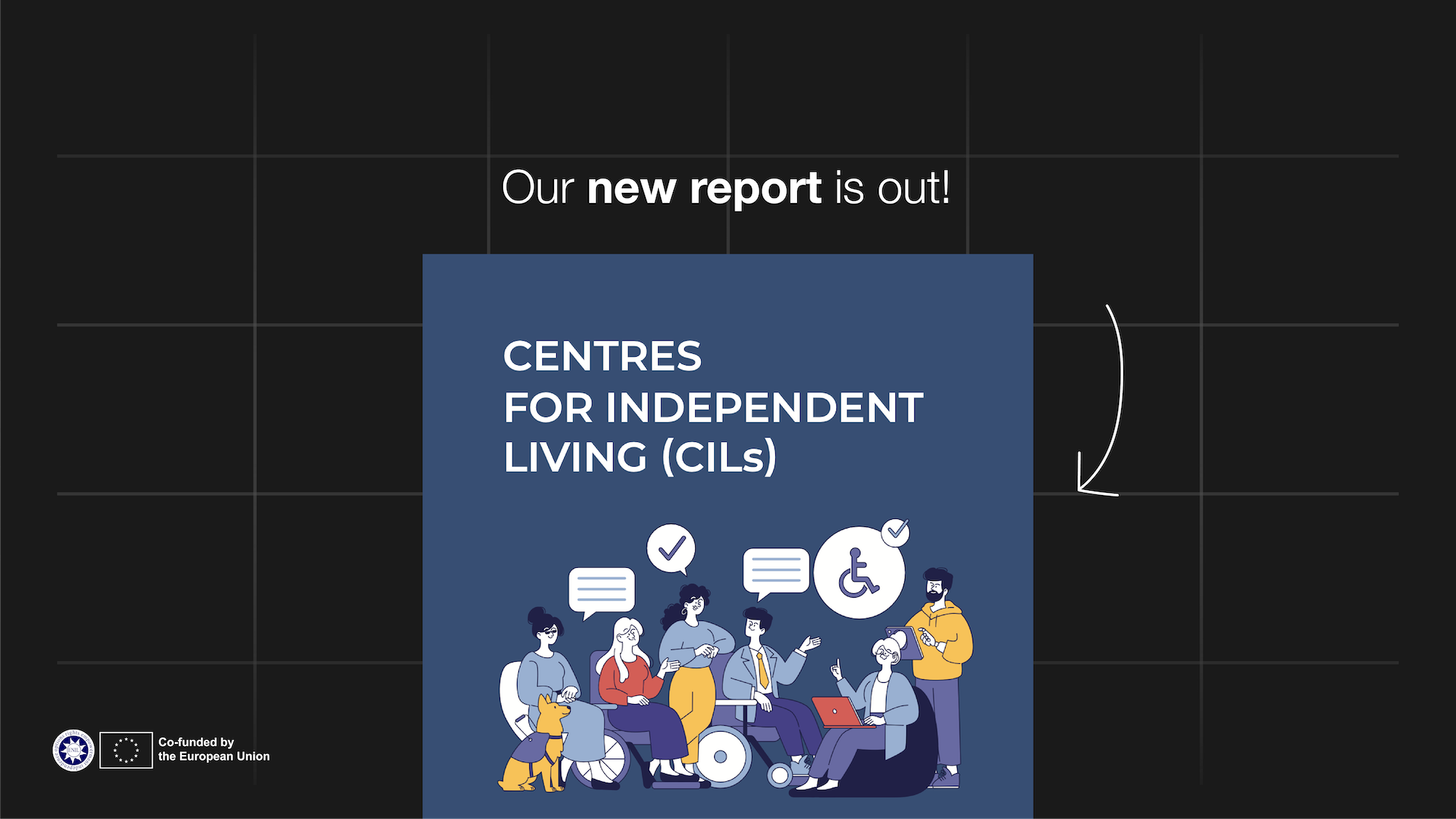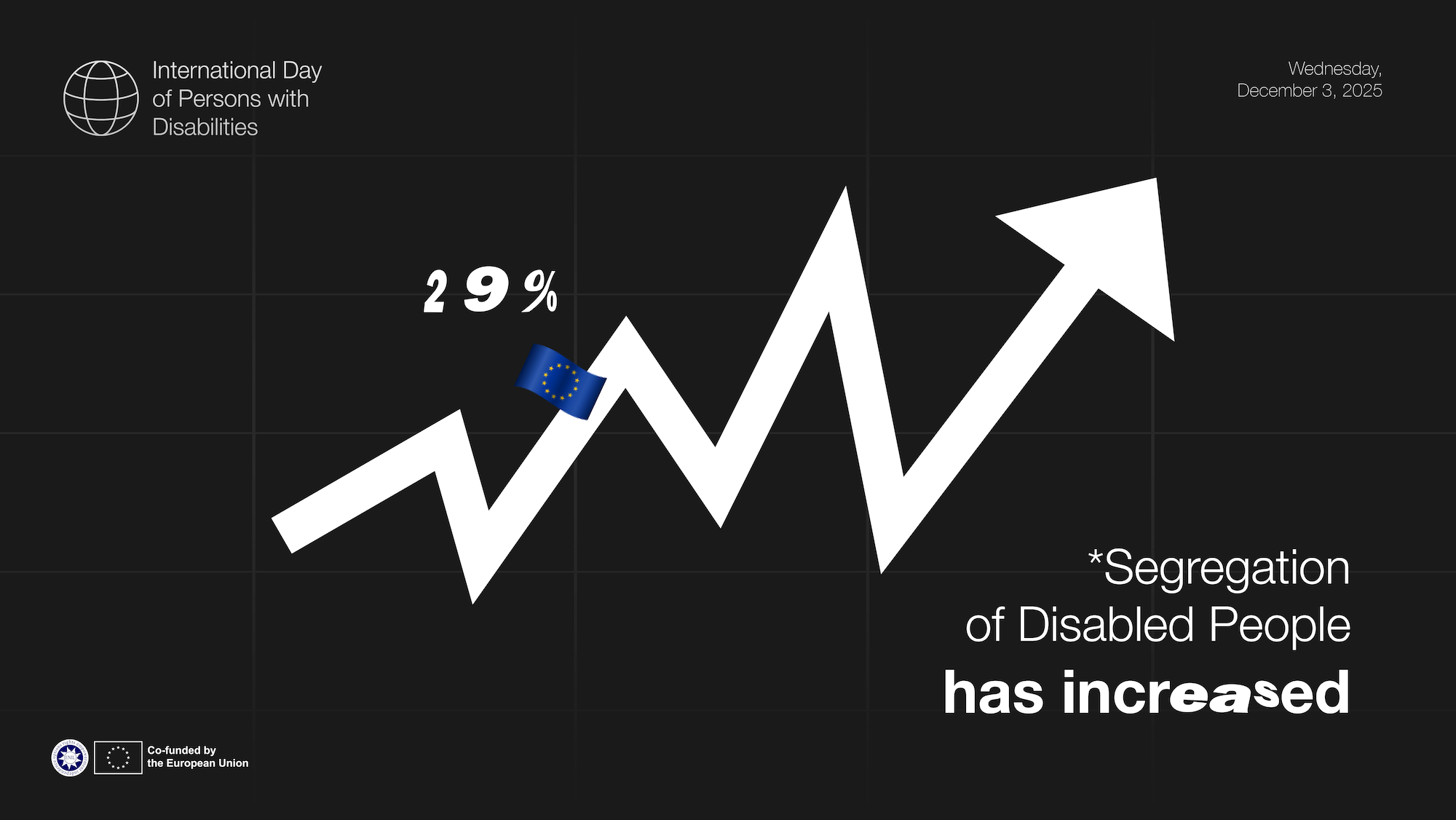Despite the fact that the UN Convention on the Rights of Persons with Disabilities calls for and obligates all for implementation of the human rights approach, still the exiting rule of law system in each state, including and the EU and the implementation of gender disability equality is still not sufficiently developed not even started. In the last decade everyone is talks about intersectionality. But still the Rule of Law in every States is often designed in manner that leads to exclusion and systemic discrimination for some of the human being who are not belonging to human being without disability.
The level to which there is a significant participation of persons with disabilities in political powers is a key indicator of the inclusion of persons with disabilities in society, in general. Hence the international legislation is requiring for full participation of disability community, still the practice in the EU and other countries (associated) outline different story.
The analysis on the ground suggests that the application of legislative quotas has had a positive impact on achieving gender balance in parliaments. It is expecting that countries with legislated quotas will achieve gender balance by 2026. But the question is where women and girls with disabilities within this gender quota mechanism are? The postulates of those gender quota it seems it is not set on the principles on human rights, since the disability has not been recognized. It seems that women and girls with disability are completely forgotten and ignored by the feminist and gender movement. As will Young says “that society’s structures and norms are a reflection of existing power relations, created and defined by dominant groups to maintain the status quo (Young 1990)”.
In Macedonia as in other countries even the gender quota exists in those last decade the women and girls politicians without disabilities has never ever put attempt to discuss about disability or CRPD or even to take some attempts to involve a women with disability using this affirmative measure. The analysis on the ground shows that the general public has various negative perceptions about persons with disabilities, and women with disabilities are especially vulnerable. Men with physical disabilities are most accepted as holders of public office, and they would only vote for them if they run for the position of mayor. As the official positions increase from local to national level, the support for the candidates with disabilities declines, which is a serious problem in the fight against stereotypes – that a person with disabilities will not be able to perform the function of MP or president of the country. Perceptions conducive to multiple discrimination are plentiful and they intersect between gender and disability, especially for women with multiple disabilities for whom only 2% would vote.
The last analysis (Analysis of the participation of women and girls with disabilities in political and public life in Macedonia) outlines different perception between person with disabilities and the political parties. In general, the political parties and the persons with disabilities have an opinion that women and girls with disability should be included in the political life. But their thoughts differs about the mechanisms, how to be done that, within the existing quota system or there is a need of another affirmative measures just for women and girls with disabilities. On this question 70% of persons with disabilities believe that women should be part of the existing quota system. That opinion share only 59% of political parties. 8% of people with disabilities indicate that women with disabilities should not be part of a quota system. 2% of the political parties believe that women with disabilities should not be part of a quota system, while 9 % of them said they don’t know. In contrast to political parties, where only 10% believe that there should be a special quota system for women with disabilities, this is quite pronounced in the views of people with disabilities, where even 30% of them believe that a special quota system should be required for women with disabilities.

Such perceptions, however, point to the low awareness among both groups for gender equality and the inclusive equality based on the CRPD principles. Since has past two decades from the CRPD ratification, the inspired and exited motivation for creating a just society for persons with and without disabilities based on CRPD principle has failed. It`s seems that the community with and without disabilities are started to reach for the simplest solution, i.e everyone should stay in their own “yard” and not to mess in another one.
Using the arguments by Young if we want to change our position of oppression, we must demand to be a part of the political structure, engage in setting the agenda and defining the issues, and to try to redefine the concepts that relate to our lives. Without our active involvement, our position of marginalization and oppression will be maintained



